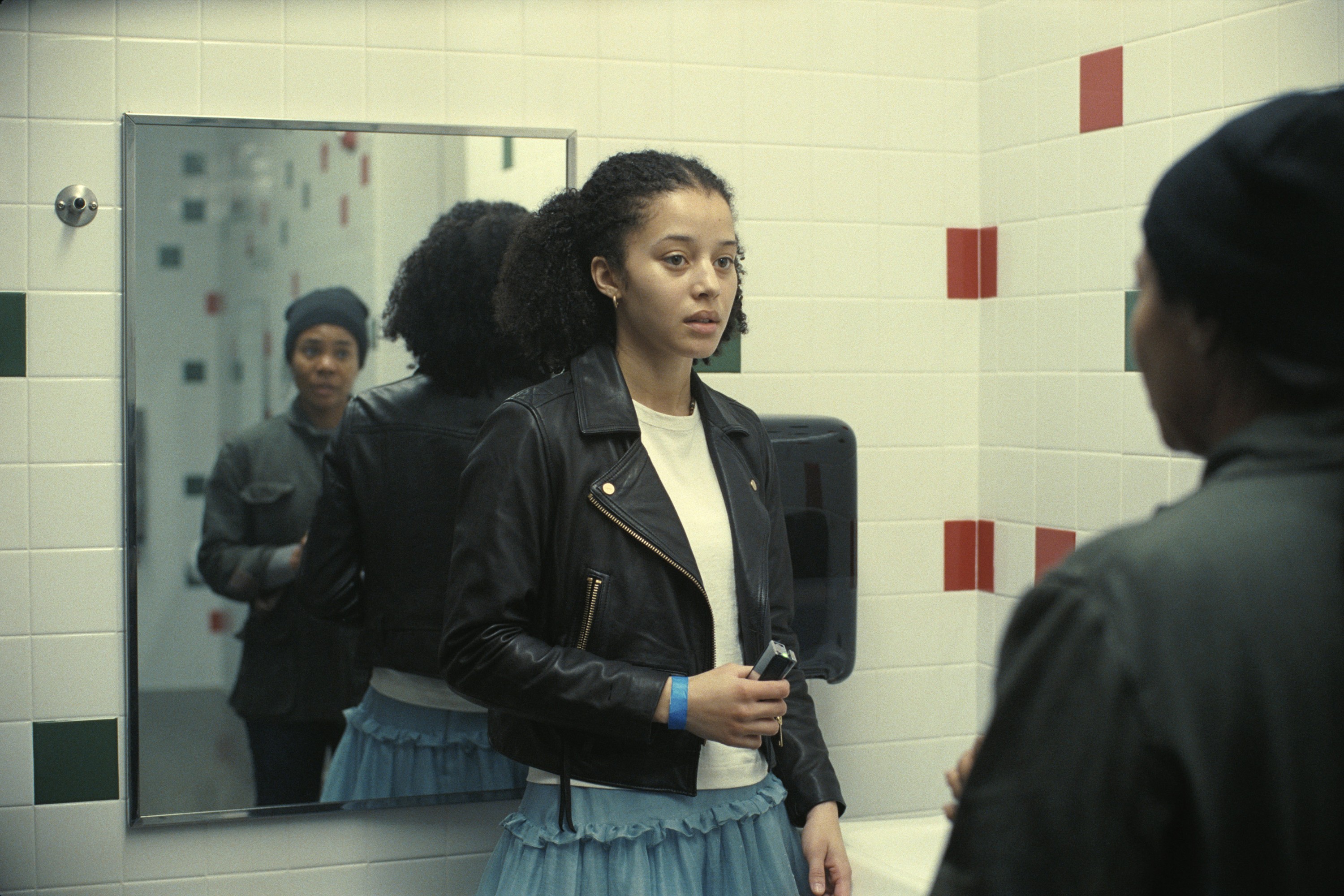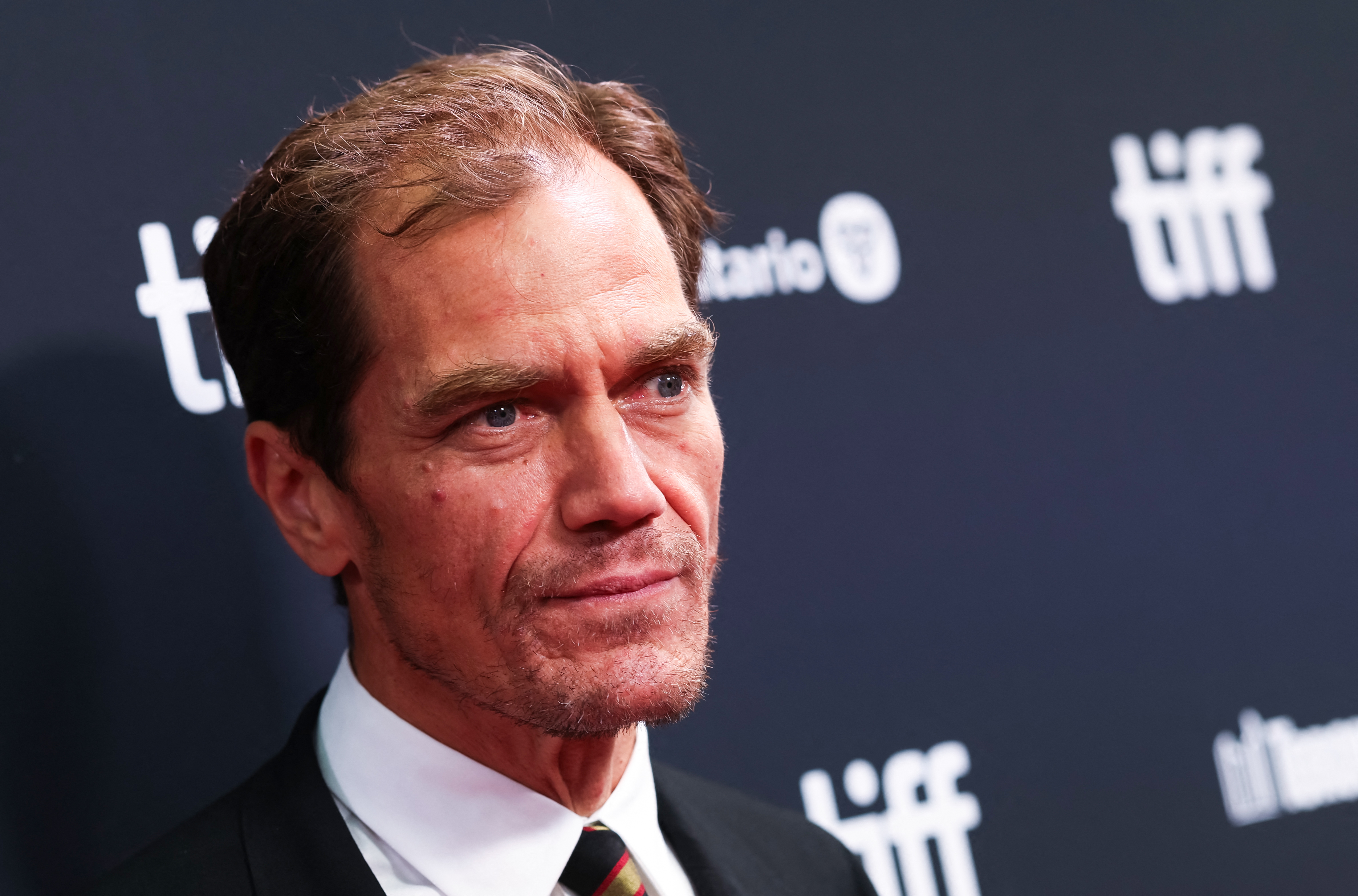The following article is an excerpt from the new edition of “In Review by David Ehrlich,” a biweekly newsletter in which our Chief Film Critic and Head Reviews Editor rounds up the site’s latest reviews and muses about current events in the movie world. Subscribe here to receive the newsletter in your inbox every other Friday.
Ahoy, mateys! And welcome to another thrilling installment of “In Review.” Over the last two weeks I have journeyed far and wide across this land to bring you the hottest takes on the fall’s most exciting new movies, even if the best of them — by some distance — was the one I saw at the exotic AMC 34th Street (more like One Escalator After Another am I right?).
Here are five things I learned on my travels:
Mona Fastvold and Brady Corbet Are Re-Writing the Rules
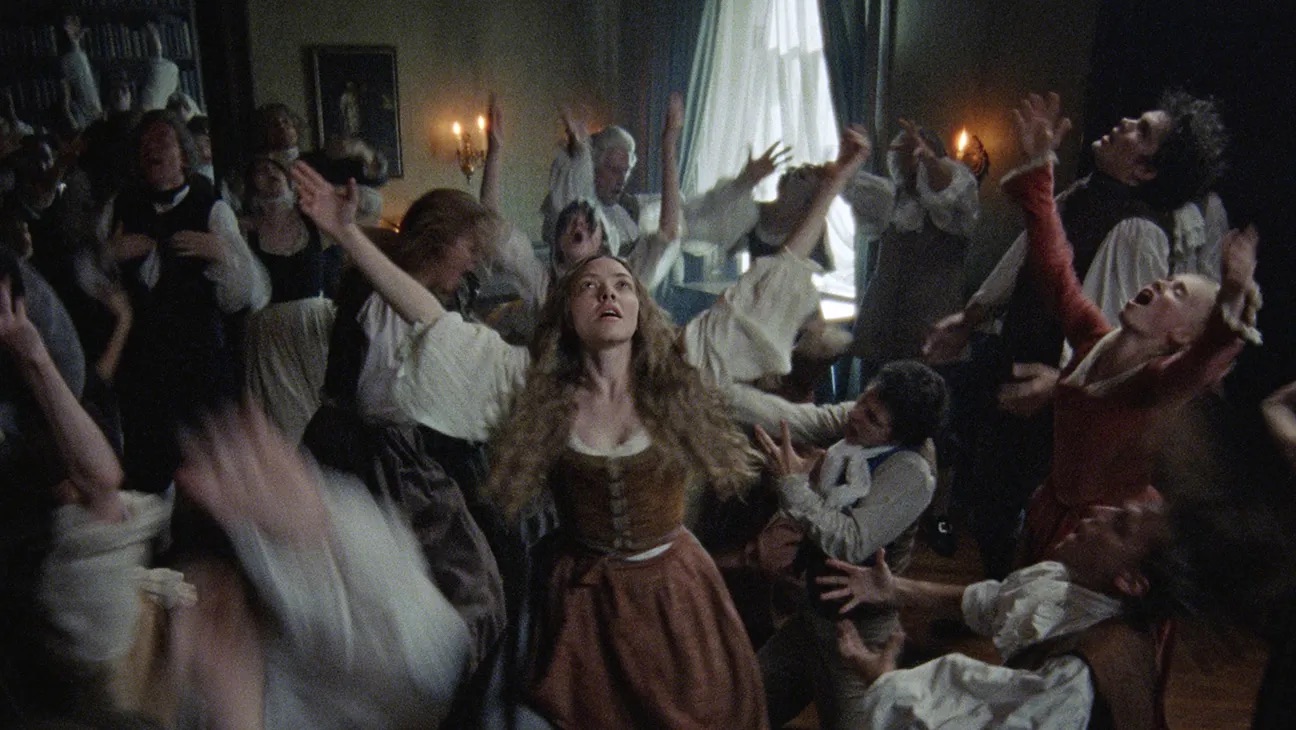
When “The Brutalist” stormed the festival circuit around this time last year, it seemed like something of a unicorn — as well as an almost impossible sell. Twelve months, 10 Oscar nominations, and one rapturous quasi-musical later, it feels like a new kind of recipe for success. How do you follow an epic historical drama about a traumatized European who sails to America and builds their own church? You make another one, of course.
The parallels between Mona Fastvold and Brady Corbet’s future projects may not rhyme quite as clearly as those between “The Brutalist” and “The Testament of Ann Lee,” but the most exciting thing about this one-two punch isn’t their thematic overlap so much as it is their shared sense of scale and self-possession. At a time when Hollywood is both deathly allergic to risk and physically incapable of making anything that costs less than $100 million, the fact that Fastvold and Corbet have now both directed gorgeous, sweeping, and creatively unbound movies for a fraction of that cost in Hungary feels like a new way forward. Sure, that model requires the kind of zeal and asceticism more associated with a religious movement than a film set, but “The Testament of Ann Lee” is nothing if not an ideal example of how it’s done.
Passion Projects Are a Double-Edged Sword

Most good movies take a hot minute to get made, but this fall saw the premieres of several films — surely more than I’ve made room to mention here — that were marinating for decades. I mean, Guillermo del Toro was probably pitching his “Frankenstein” to the other kids in the middle of class during first grade, where his teacher forced him to write “I will not be sympathetic toward monsters” on the blackboard 100 times as punishment.
But timing is everything, and it often only appears as if all of the pieces are falling into place. On the one hand, Park Chan-wook was duly rewarded for waiting 20 years to direct “No Other Choice,” as his Donald Westlake adaptation — about a man so desperate for another job in his field that he murders the other candidates — is perfectly suited for the worldwide pivot to AI. Ditto Laura Poitras, who’d been trying to make a Seymour Hersh documentary since at least 2005, but didn’t manage to wear him down until world events — specifically the genocide in Gaza — had provided her the material she needed to paint her subject’s career as an investigative journalist into a broader and more damning portrait of American malfeasance.
On the other hand, del Toro has not been done any favors by dreaming of “Frankenstein” for so long; his love for the material is sacred and unimpeachable, but it comes through more palpably in how he talks about Mary Shelley’s novel than it does in any part of the movie he’s made from it. Soapy, broad, and so chintzy-looking despite its budget that it was difficult for me to appreciate the tragic beauty of Frankenstein’s monster (I weep for how tactile this film might have been had del Toro made it before teaming up with cinematographer Dan Laustsen for “Crimson Peak” and committing himself to a series of increasingly garish digital veneers), this most passionate of passion projects would be so easy to mistake for any of the other gothic CGIsores from the last 25 years that it might as well be stitched together from the leftover parts of “Van Helsing.” I think there was a time when del Toro would have recognized as much, but the money and technology at this disposal has caused him to lose sight of the human element that drew him to this story in the first place.
Most Distributors Are Still Scared of Palestine
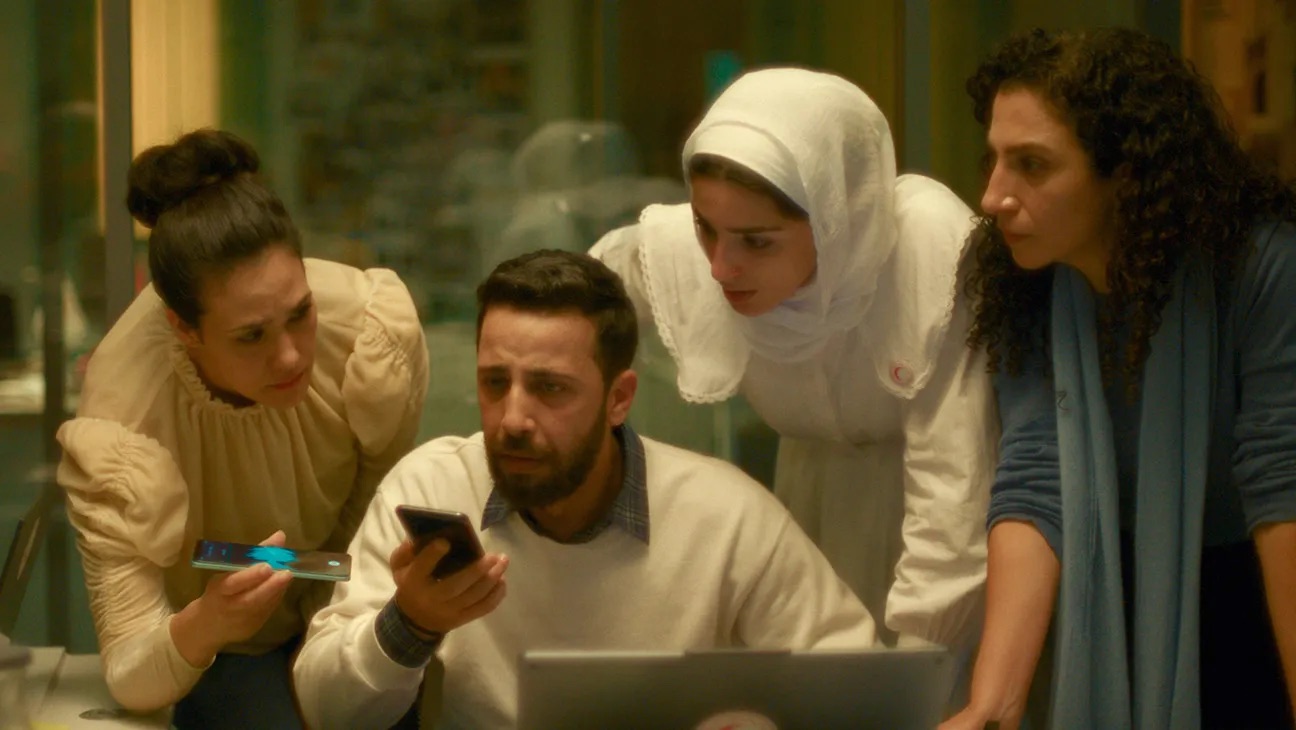
Earlier this summer, I wrote about the fate of Nadav Lapid’s “Yes,” and how its post-Cannes disappearance appeared to suggest that festivals and distributors were afraid of films that dared to confront the most transparent moral atrocity of our times: the genocide in Gaza (Kino Lorber has since acquired U.S. rights for “Yes,” and will release it here in early 2026). Did Telluride, Venice, or TIFF do anything to improve the situation? Well, yes and no.
Telluride, a wonderful festival whose need to appease its patrons has seen it become subtly but worryingly less adventurous in its programming, neglected to screen many of the recent films that feature the genocide as their primary subject (“Cover-Up” touches on Gaza with great purpose, but only in passing). Amid a lineup that was absolutely bursting with documentaries about everything from the American Revolution to the making of “Megalopolis,” and everyone from E. Jean Carroll to Elie Wiesel, I was disappointed not to see “Put Your Soul on Your Hand and Walk,” and only took an uncertain measure of consolation in the fact that Telluride chose to screen Netalie Braun’s “Shooting,” a self-reflexive Israeli film about how the country’s unchecked militarism has poisoned its cinema (I wasn’t able to see it myself, but the movie’s Letterboxd reviews make it sound appropriately damning).
TIFF, which stepped on rake after rake in the process of premiering “The Road Between Us: The Ultimate Rescue,” an “inspiring” documentary by TIFF donor Barry Avrich about an Israeli man who saved his family from the violence of October 7, at least provided a venue for the North American premieres of Venice standout “The Voice of Hind Rajab,” as well as Locarno highlight “With Hasan in Gaza” and the rousing historical drama “Palestine 36.” The festival also, if not on its own accord, played host to a loud and defiant protest in front of the Lightbox last Sunday night, which did more to make TIFF seem relevant and in conversation with the world than most of the movies I saw there.
And yet, of all these films, only “Put Your Soul” and “Palestine 36” have distribution, but Kino Lorber and Watermelon Pictures — the latter of which almost exclusively releases movies from or about Palestine — can’t be expected to be American cinema’s sole lifeline to the country. (“The Road Between Us” is being released on more than 1,000 screens in October.) Fingers crossed that “The Voice of Hind Rajab,” “With Hasan in Gaza,” and “Cover-Up” will all find proper homes soon, even if only under the auspices of awards season.
Ambivalence Is Out, Emotion Is In
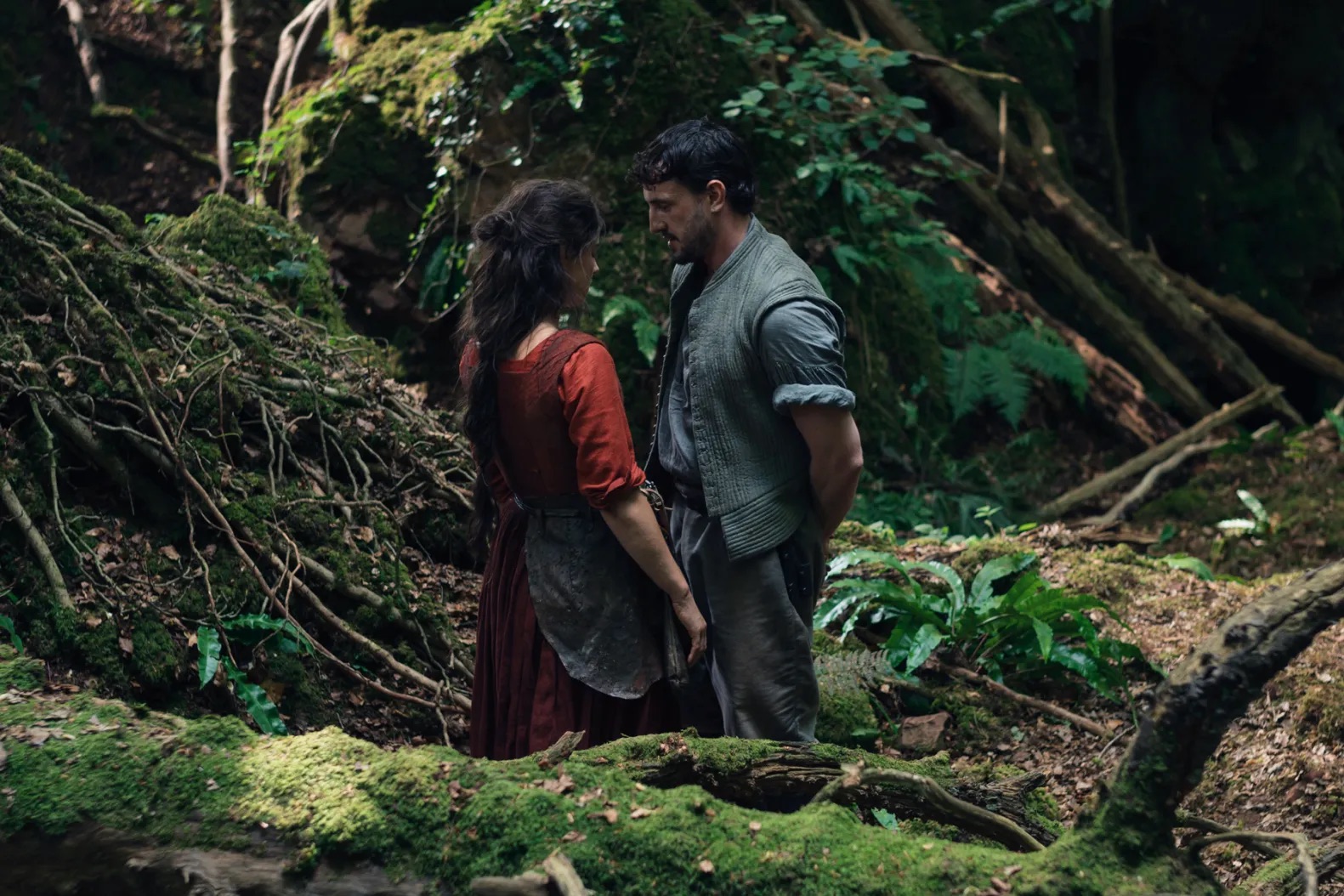
I don’t want to make any sweeping pronouncements based on anecdotal evidence, a tiny sample size, and my own personal biases (just kidding, I’m a film critic, that’s pretty much my favorite thing to do), but at a time when being numb to the world is at once both a survival mechanism and a moral abdication, the festivals made it seem as if there’s a newfound premium on movies that make you feel anything strongly — even if only through brute force.
As an introverted cynic whose love of movies can probably be explained on some level by the fact that sitting in the dark allows me to be present but not perceived, I naturally struggled with Chloé Zhao’s insistence on leading every “Hamnet” premiere audience in the same mindfulness routine that she conducted for the cast and crew on set every morning. Taking deep breaths, looking the person next to you in the eye, putting your hand on your heart, that sort of thing. I’m not proud to say that it had the opposite of the intended effect on me, making me more guarded and self-conscious rather less (though as someone who’s been prescribed stimulants to make myself less hyper for the last 20 years, I’m used to that sort of counter-intuitiveness).
Less than an hour later, I was sobbing so hard that the woman next to me started to look worried. Maybe it was the mountain air, or that I missed my kids, or that “Hamnet” resonated with me as the story of a writer who goes on a work trip that leaves him unable to stop or bear witness to a tragedy back at home (Tweeting about movies in Telluride is basically the same thing as scripting “Macbeth” in 17th century London and don’t you dare suggest otherwise), but I forgot myself for the rest of the film.
I forgot that I was in public, and that leaving yourself completely open to the pain of others can be a paralyzing experience these days. I even forgot that Gracie Abrams was sitting right behind me. “Hamnet” will never be accused of having a light touch (my review accused the tear-jerker of “farming viewers for moisture”), but I found myself unexpectedly grateful for Zhao’s refusal to hold back, and for how the almost pornographic sentimentality of her film invited its audience to participate in the same kind of emotional transference that Will Shakespeare and his poor wife Agnes experience towards the end of the story.
It’s no coincidence that “Hamnet” stayed with me — sank deeper into my bones, even — over the course of the days that followed, while the stiff upper lip of “H Is for Hawk,” the probing ambiguity of “After the Hunt,” and the inert wistfulness of “La Grazia” made it that much harder to engage with those films on any level. There’s a reason why the last five minutes of “Jay Kelly” is one of the only memorable parts of that movie, just as there’s a reason why “Rental Family” loses points for not better weaponizing its treacle, and why the most interesting thing about “The Smashing Machine” is how gingerly it navigates between pain and stability. It’s never been more important to feel alive to the world, especially for those of us who are more inclined to be closed off, and it’s the movies which dispossess people of their numbness that are poised to leave the biggest mark this fall.
Movies Are Meeting the Moment

On a related — if somewhat perpendicular — note, it was also telling to see that several of the season’s early standouts are movies that engage with our current moment head-on. That’s most obviously true of Paul Thomas Anderson’s “One Battle After Another,” which towered over the festivals despite skipping all three of them, and, along with “Eddington,” offered the most overt rebuke to/apology for the prevailing wisdom that many of today’s greatest filmmakers are more comfortable engaging with the past (more on that next week). But it was also thrilling to see Yorgos Lanthimos confront red pill conspiracy brain and corporate technocracy with “Bugonia,” whose relevance to the present day was made all the more pronounced by the fact that it’s a remake; “Bugonia” might like the sweep and inventiveness of Lanthimos’ best work, but sometimes a brilliant Chappell Roan needle-drop is all it takes to bridge the gap between any number of different worlds.
No such luck in Park Chan-wook’s “No Other Choice” (which favors classic Korean pop ballads over the modern American kind), but none of the maestro’s work has stung quite as hard as this one does in the pyrrhic victory of its final moments, when the film’s “Looney Tunes” violence mournfully surrenders to a situation all too real. And while “Wake Up Dead Man” might lack the fun and humor of the previous “Knives Out” movies (I found the mystery in this one labored, its major supporting roles underwritten, and Benoit Blanc’s presence frustratingly ornamental), Rian Johnson’s ensemble Netflix movie comes back to life whenever it refocuses its attention on the political underpinnings of its story — on charismatic demagogues, the self-serving cowardice that fuels their power, and the absurdity of the politics that bind them together. The least of Johnson’s trilogy does the most to position it as a coherent treatise against the indecency of Trumpian narcissism, and as a bittersweet testament to the fantasy of solving it.
Want to stay up to date on IndieWire’s film reviews and critical thoughts? Subscribe here to our newly launched newsletter, In Review by David Ehrlich, in which our Chief Film Critic and Head Reviews Editor rounds up the best new reviews and streaming picks along with some exclusive musings — all only available to subscribers.

